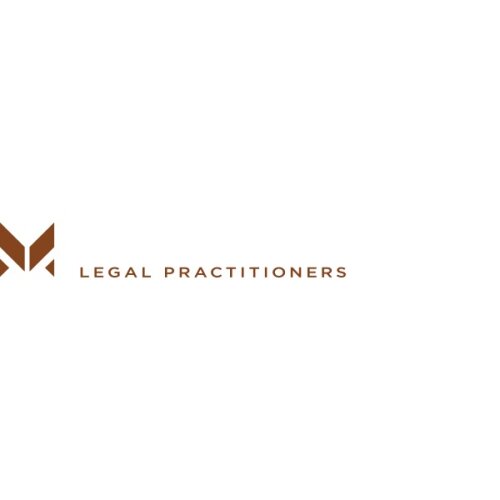Best Water Law Lawyers in Zambia
Share your needs with us, get contacted by law firms.
Free. Takes 2 min.
Or refine your search by selecting a city:
List of the best lawyers in Zambia
About Water Law in Zambia
Water Law in Zambia refers to the system of rules and regulations that govern the ownership, use, management, and protection of the country’s water resources. Zambia relies heavily on its rivers and lakes for agriculture, industry, drinking water, and power generation. The primary legal framework is established by the Water Resources Management Act No. 21 of 2011. This Act created institutions and mechanisms to ensure equitable and sustainable access to water for all people while protecting the environment. Water Law in Zambia addresses issues such as water rights, usage permits, conservation, dispute resolution, and the prevention of pollution.
Why You May Need a Lawyer
There are several situations in which you might need a lawyer with expertise in Zambian Water Law. These include disagreements over access to water, applying for water permits, contesting permit denials, addressing pollution issues, or resolving water use disputes between neighbours, communities, or commercial entities. You may also need legal advice if your company is seeking to develop agricultural, industrial, or hydroelectric projects that affect water resources. Additionally, lawyers can help navigate compliance with regulatory requirements or represent you if you are facing legal action related to water usage or alleged pollution. Water law matters often involve complex interactions between community rights, private interests, and government regulations, making legal guidance essential.
Local Laws Overview
The Water Resources Management Act No. 21 of 2011 is Zambia’s main law for managing water resources. It establishes the Water Resources Management Authority (WARMA), which is responsible for regulating water use, issuing permits, and enforcing water laws. Permits are required for a range of water-related activities, including abstraction (taking water from sources), effluent discharge (returning used water), and construction of large water infrastructure.
The law recognizes various categories of water rights, such as domestic use (no permit needed for small-scale use for household purposes) and commercial or industrial use (permits required). The Act sets guidelines to protect water quality and quantity, promote equitable access, and manage transboundary water resources in coordination with neighboring countries. Other relevant laws include the Environmental Management Act and laws relating to land tenure, which can affect water access and use.
Customary law and traditional rights are also considered, especially in rural areas. WARMA is the main enforcing authority, but other agencies, such as the Environmental Management Agency and local councils, also play important roles.
Frequently Asked Questions
What is required to obtain a water use permit in Zambia?
You must apply to WARMA, providing details on the source, intended use, volume, and potential environmental impacts. Permits are evaluated based on criteria such as sustainability and competing demands.
Can individuals use small amounts of water from rivers for household purposes without a permit?
Yes, small-scale domestic use such as for drinking, bathing, and household gardening does not require a formal permit under the Act.
How are disputes over water rights or usage resolved?
Most disputes are resolved through WARMA’s internal dispute resolution mechanisms, with the possibility of appeal to formal courts if necessary.
What are the penalties for polluting water sources?
Pollution of water resources carries penalties that may include fines, suspension of permits, or imprisonment, depending on the severity and intent.
How does customary law interact with statutory Water Law?
Customary rights, particularly in rural and community settings, are recognized but must not conflict with national water regulations. In case of conflict, statutory law generally prevails.
Can mining or agricultural projects access water easily?
Such projects require permits and must undergo environmental impact assessments to ensure they do not negatively affect water availability or quality for others.
How is water allocated during shortages or droughts?
WARMA prioritizes allocation based on public health, environmental needs, and equitable access, with domestic and ecological use often taking precedence.
Are there special rules for transboundary water resources?
Yes, Zambia works with neighboring countries under international agreements to manage shared watercourses and resolve cross-border issues.
What should I do if I suspect illegal water abstraction or pollution?
You should report suspected illegal activities to WARMA or the local council for investigation and enforcement action.
Do landowners automatically have rights to water on their property?
Land ownership does not automatically confer unrestricted water rights. The use of significant water quantities or construction impacting water resources requires permits from WARMA.
Additional Resources
If you need more information or assistance regarding Water Law in Zambia, consider the following resources:
- Water Resources Management Authority (WARMA) - The principal regulatory body for water resources in Zambia
- Zambia Environmental Management Agency (ZEMA) - For environmental permitting and pollution issues
- Ministry of Water Development and Sanitation
- Local councils and chiefs for community water issues or customary law guidance
- Legal Aid Board of Zambia for affordable legal assistance
- Zambian Law Reports and government publications for legal texts and case law
Next Steps
If you believe you need legal advice or representation concerning Water Law in Zambia, take the following steps:
- Identify the nature of your issue (such as a permit application, dispute, or compliance question)
- Gather relevant documents, such as land titles, previous permits, or correspondence with authorities
- Contact a qualified lawyer experienced in environmental and water law or approach the Legal Aid Board
- Reach out to WARMA or your local council for preliminary information or to initiate official processes
- Prepare a clear summary of your situation and desired outcomes to discuss with your lawyer or advisor
Prompt action and informed guidance can help protect both your rights and Zambia’s vital water resources. Always ensure you engage legal experts early, especially for complex or high-stakes matters.
Lawzana helps you find the best lawyers and law firms in Zambia through a curated and pre-screened list of qualified legal professionals. Our platform offers rankings and detailed profiles of attorneys and law firms, allowing you to compare based on practice areas, including Water Law, experience, and client feedback.
Each profile includes a description of the firm's areas of practice, client reviews, team members and partners, year of establishment, spoken languages, office locations, contact information, social media presence, and any published articles or resources. Most firms on our platform speak English and are experienced in both local and international legal matters.
Get a quote from top-rated law firms in Zambia — quickly, securely, and without unnecessary hassle.
Disclaimer:
The information provided on this page is for general informational purposes only and does not constitute legal advice. While we strive to ensure the accuracy and relevance of the content, legal information may change over time, and interpretations of the law can vary. You should always consult with a qualified legal professional for advice specific to your situation.
We disclaim all liability for actions taken or not taken based on the content of this page. If you believe any information is incorrect or outdated, please contact us, and we will review and update it where appropriate.
Browse water law law firms by city in Zambia
Refine your search by selecting a city.
















